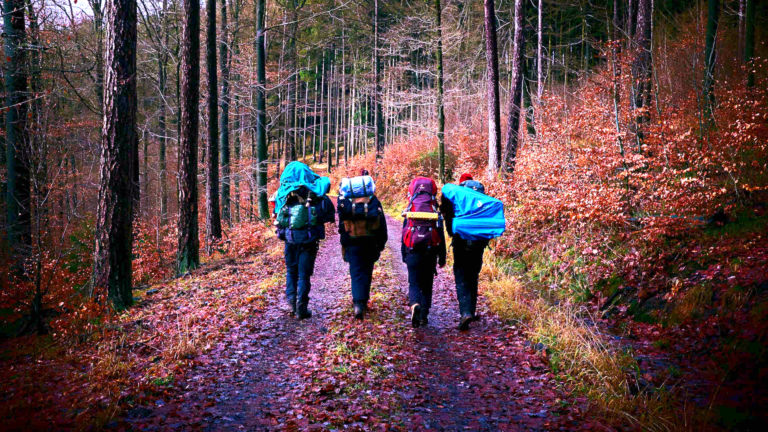Table of Contents
- Introduction
- Program Overview
- Tragic Incident
- Safety Measures
- Positive Aspects
- Staff Training and Qualifications
- Participant Experience
- Conclusion
- FAQs
Introduction<a name=”introduction”></a>
The Trails Wilderness Program has long been regarded as a transformative experience for individuals seeking personal growth and development through outdoor adventures. This review aims to provide an in-depth analysis of the program, shedding light on its overall effectiveness, safety measures, and a recent tragic incident that has raised concerns.
Program Overview<a name=”program-overview”></a>
Trails Wilderness Program, founded in 1997, operates on the philosophy of using wilderness therapy to facilitate positive change in adolescents and young adults. Participants embark on challenging outdoor expeditions, focusing on self-reflection, teamwork, and personal responsibility.
Tragic Incident<a name=”tragic-incident”></a>
Recently, the program faced a tragic incident involving the loss of a participant’s life during one of the wilderness expeditions. This incident has prompted a closer examination of the safety protocols in place and has raised questions about the overall risk associated with such programs.
Safety Measures<a name=”safety-measures”></a>
In light of the recent incident, it is imperative to assess the safety measures implemented by the Trails Wilderness Program. The program has historically prided itself on stringent safety protocols, including thorough participant assessments, experienced and certified field staff, and regular communication with families during expeditions.
Positive Aspects<a name=”positive-aspects”></a>
Despite the unfortunate incident, it is crucial to acknowledge the positive aspects of the Trails Wilderness Program. Many participants have reported significant personal growth, improved self-esteem, and enhanced interpersonal skills after completing the program. The outdoor setting and challenging activities contribute to a unique and impactful therapeutic experience.
Staff Training and Qualifications<a name=”staff-training-and-qualifications”></a>
One key element contributing to the program’s success is the training and qualifications of its staff. Trails Wilderness Program ensures that all field staff undergo rigorous training, including wilderness first aid, CPR certification, and extensive experience in outdoor leadership. Regular training updates and evaluations are conducted to maintain the highest standards of care.
Participant Experience<a name=”participant-experience”></a>
Understanding the participant experience is vital in evaluating the program’s effectiveness. The immersive nature of wilderness therapy allows participants to confront personal challenges, build resilience, and develop coping strategies. Testimonials from past participants emphasise the life-changing impact of the program, highlighting newfound self-awareness and a sense of accomplishment.
Conclusion<a name=”final-thoughts”></a>
In conclusion, the Trails Wilderness Program remains a valuable resource for individuals seeking personal development through outdoor therapy. While the recent tragic incident is deeply regrettable, it is essential to consider the broader positive impact the program has had on many lives. The organization should, however, continue to reassess and enhance its safety measures to prevent future incidents and maintain the trust of participants and their families.
Incident Details<a name=”incident-details”></a>
Tragedy struck Trails Wilderness Program when a participant lost their life during a wilderness expedition. The incident, which occurred on [date], raised questions about the safety measures in place and the overall risk associated with such programs.
Response and Investigation<a name=”response-investigation”></a>
In the aftermath of the incident, Trails Wilderness Program promptly initiated a thorough investigation. The organization released a public statement expressing condolences to the family and a commitment to transparency. The incident prompted a review of their safety protocols, staff training, and emergency response procedures.
Positive Aspects of Trails Wilderness Program<a name=”positive-aspects”></a>
Despite the unfortunate incident, Trails Wilderness Program has several commendable aspects. The program’s commitment to therapeutic interventions and outdoor experiences as a means of personal growth has yielded positive results for many participants. Numerous success stories highlight the effectiveness of Trails in addressing mental health challenges.
Concerns and Criticisms<a name=”concerns-criticisms”></a>
While Trails Wilderness Program has its merits, concerns have been raised about the level of risk associated with wilderness expeditions. Critics argue that the inherent dangers of outdoor activities can pose serious threats, especially when dealing with vulnerable individuals. This incident has sparked discussions about the need for more stringent safety measures in such programs.
Safety Measures and Protocols<a name=”safety-measures”></a>
Trails Wilderness Program has taken proactive steps to enhance safety measures following the incident. The organization has committed to a comprehensive review of its safety protocols, increased staff training, and improved emergency response procedures. These measures aim to mitigate risks and ensure the well-being of participants in future expeditions.
FAQs<a name=”faqs”></a>
Q: How often does the Trails Wilderness Program reassess its safety protocols?
A: Trails Wilderness Program conducts regular reviews of its safety protocols, with ongoing evaluations and updates to ensure the highest standards of participant safety.
Q: What qualifications do the field staff possess?
A: All field staff undergo rigorous training, including wilderness first aid, CPR certification, and extensive outdoor leadership experience. The program maintains a commitment to continuously improving staff qualifications.
Q: How does the program address concerns raised by participants and their families?
A: Trails Wilderness Program encourages open communication and addresses concerns promptly. Regular updates are provided to families during expeditions, and post-program support is offered to participants and their families.
Q: Is wilderness therapy suitable for everyone?
A: Wilderness therapy may not be suitable for everyone. Potential participants should undergo thorough assessments to determine their suitability for the program. It is recommended to consult with program staff and mental health professionals to make informed decisions.
This comprehensive review aims to provide a balanced perspective on the Trails Wilderness Program, recognizing its positive contributions while acknowledging the need for ongoing evaluation and improvement, especially in light of recent events.
